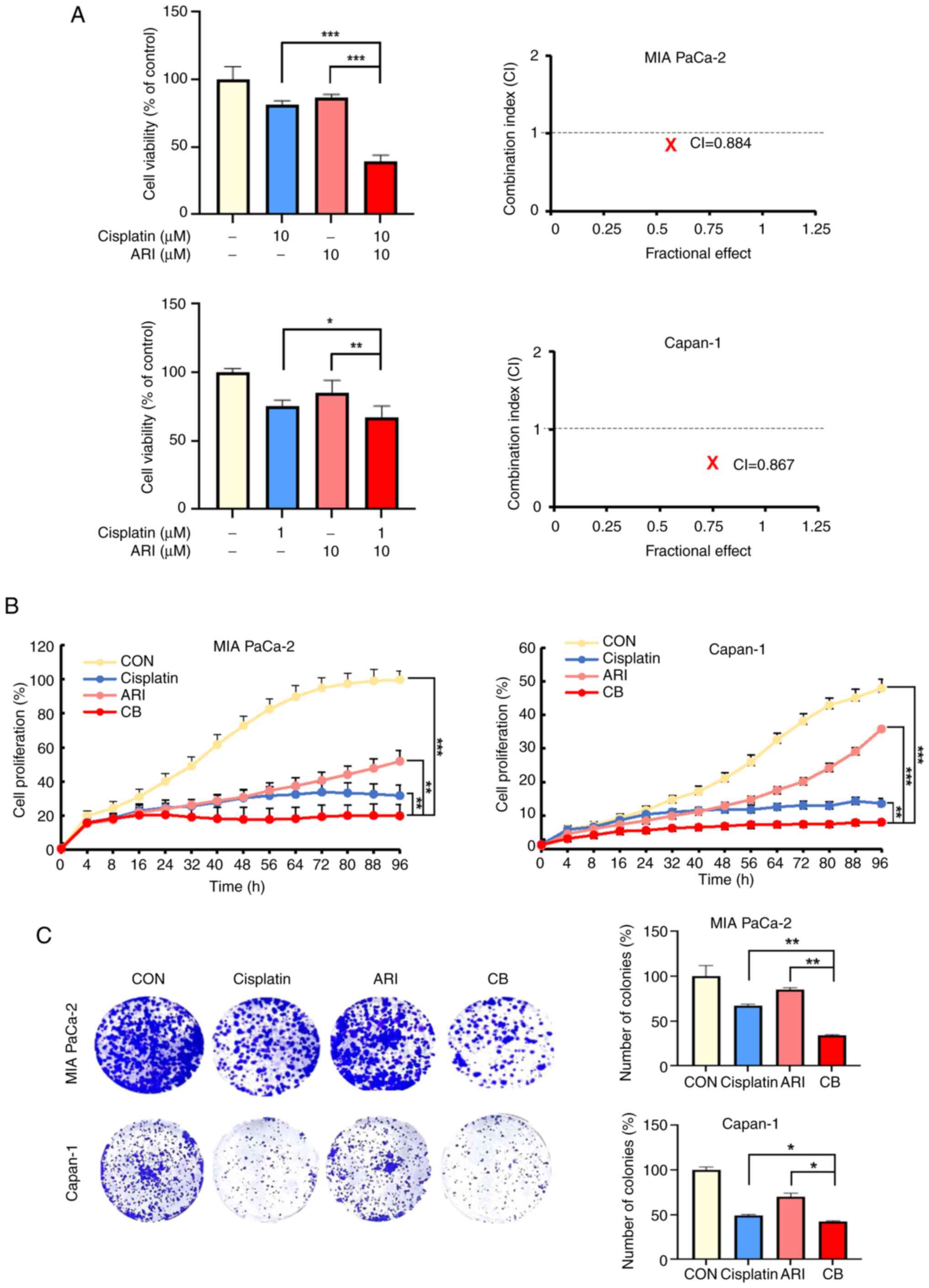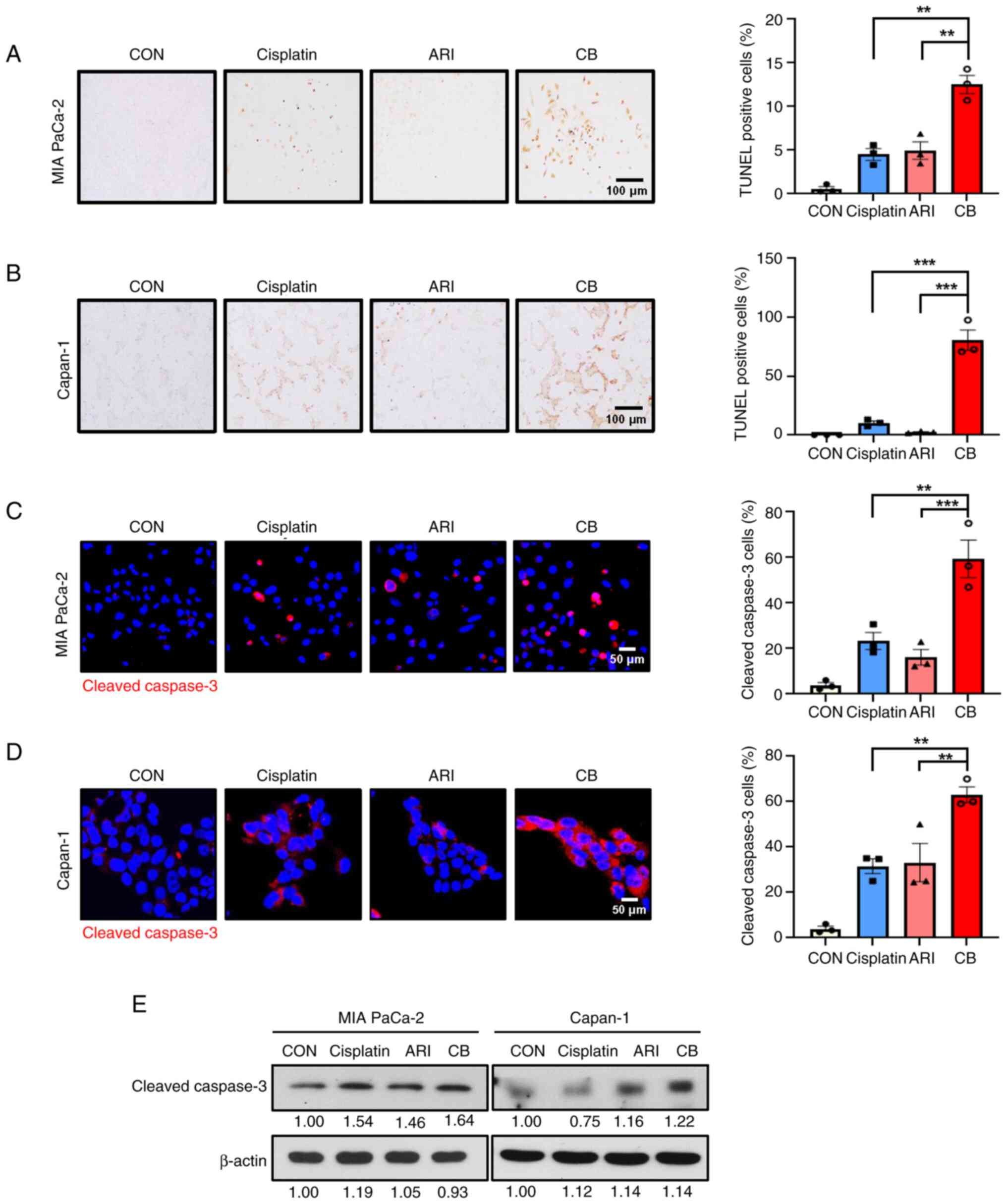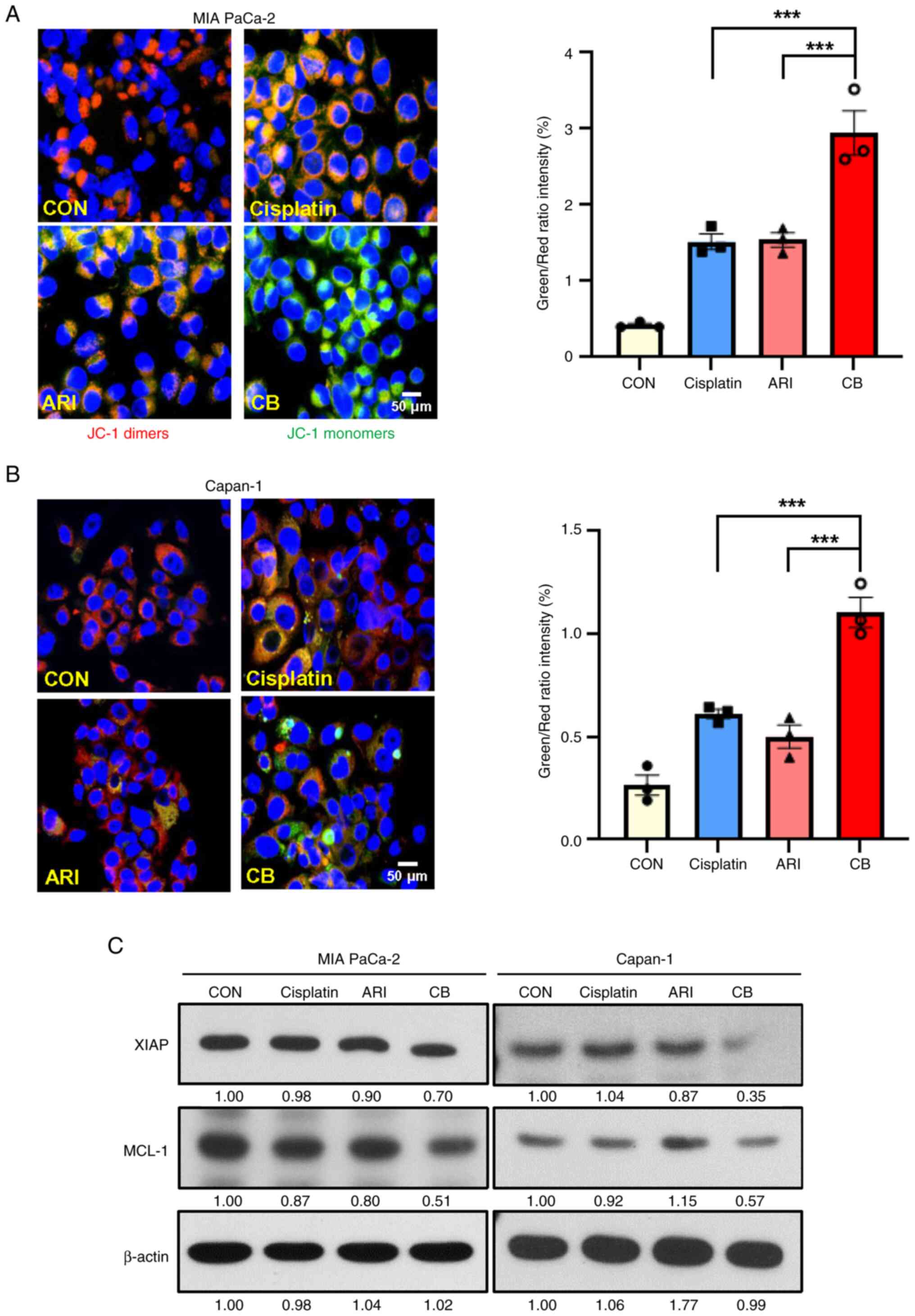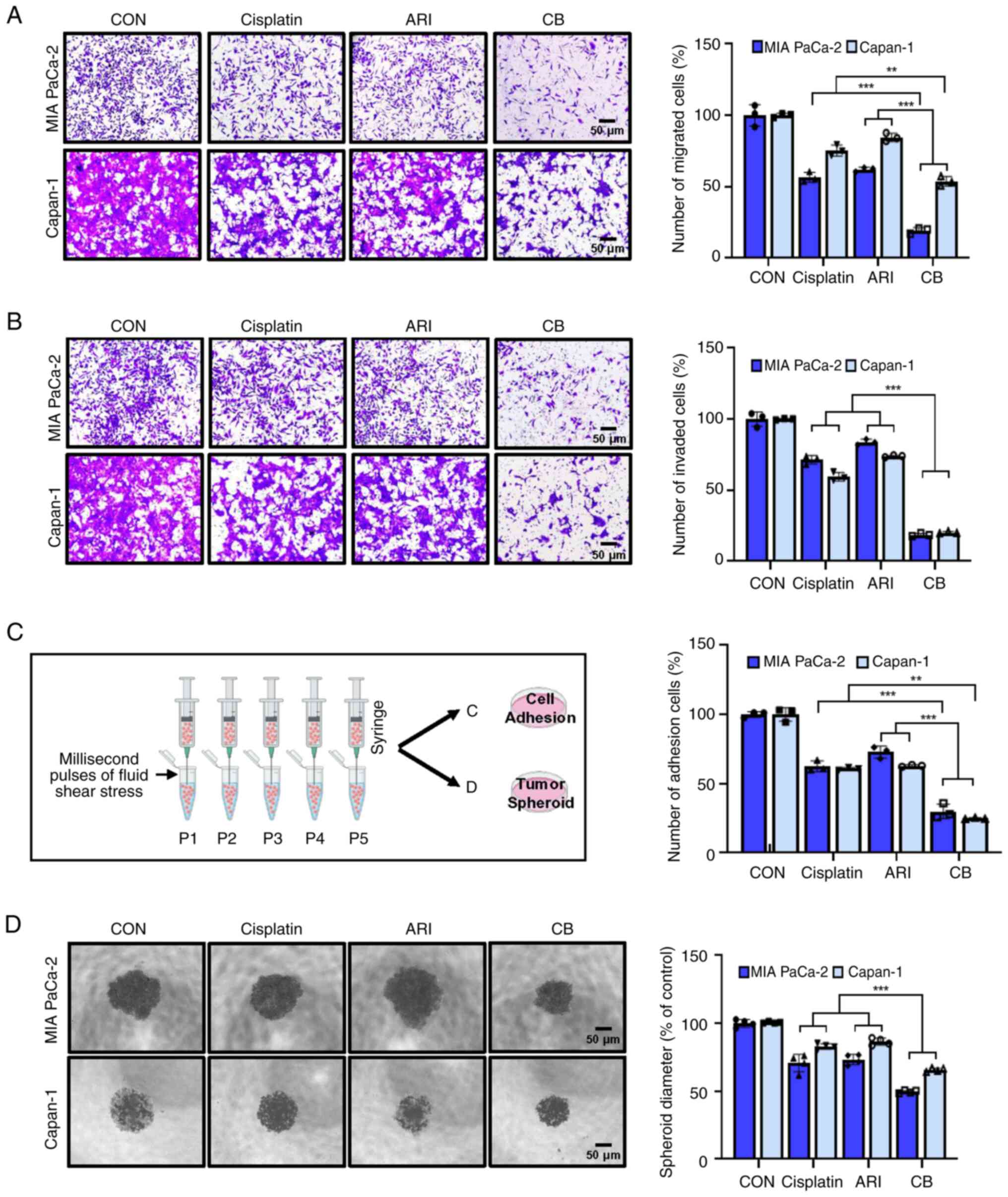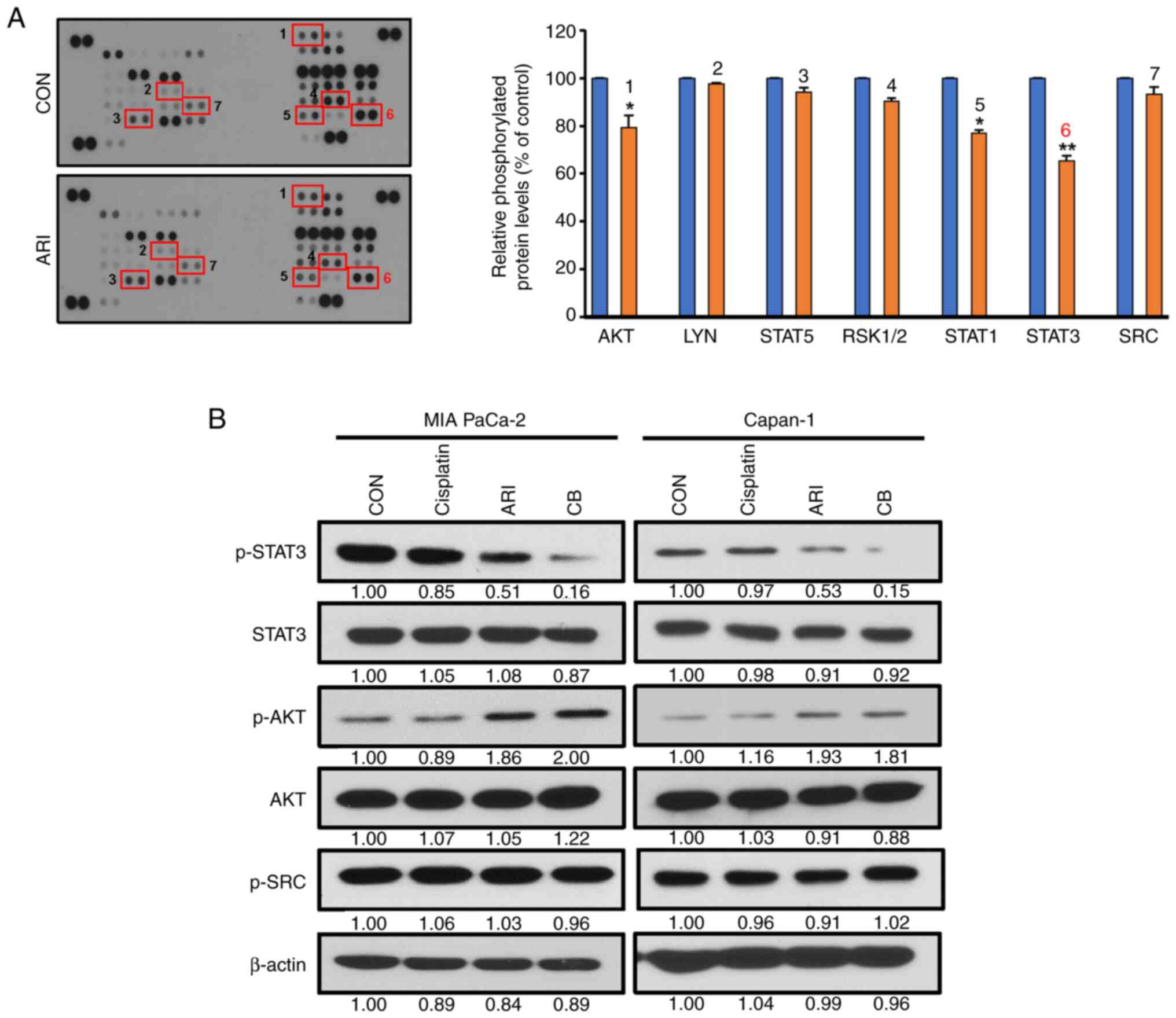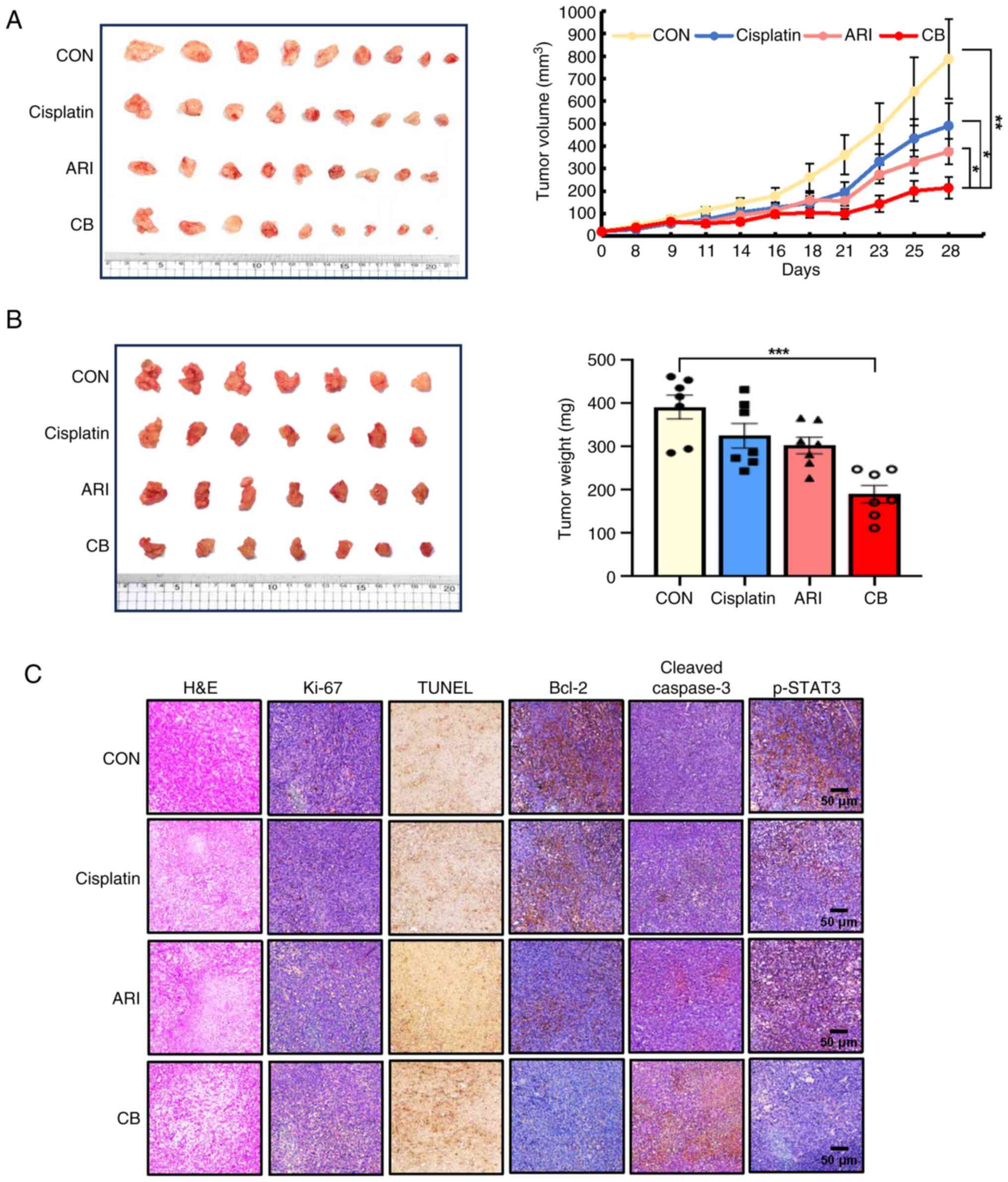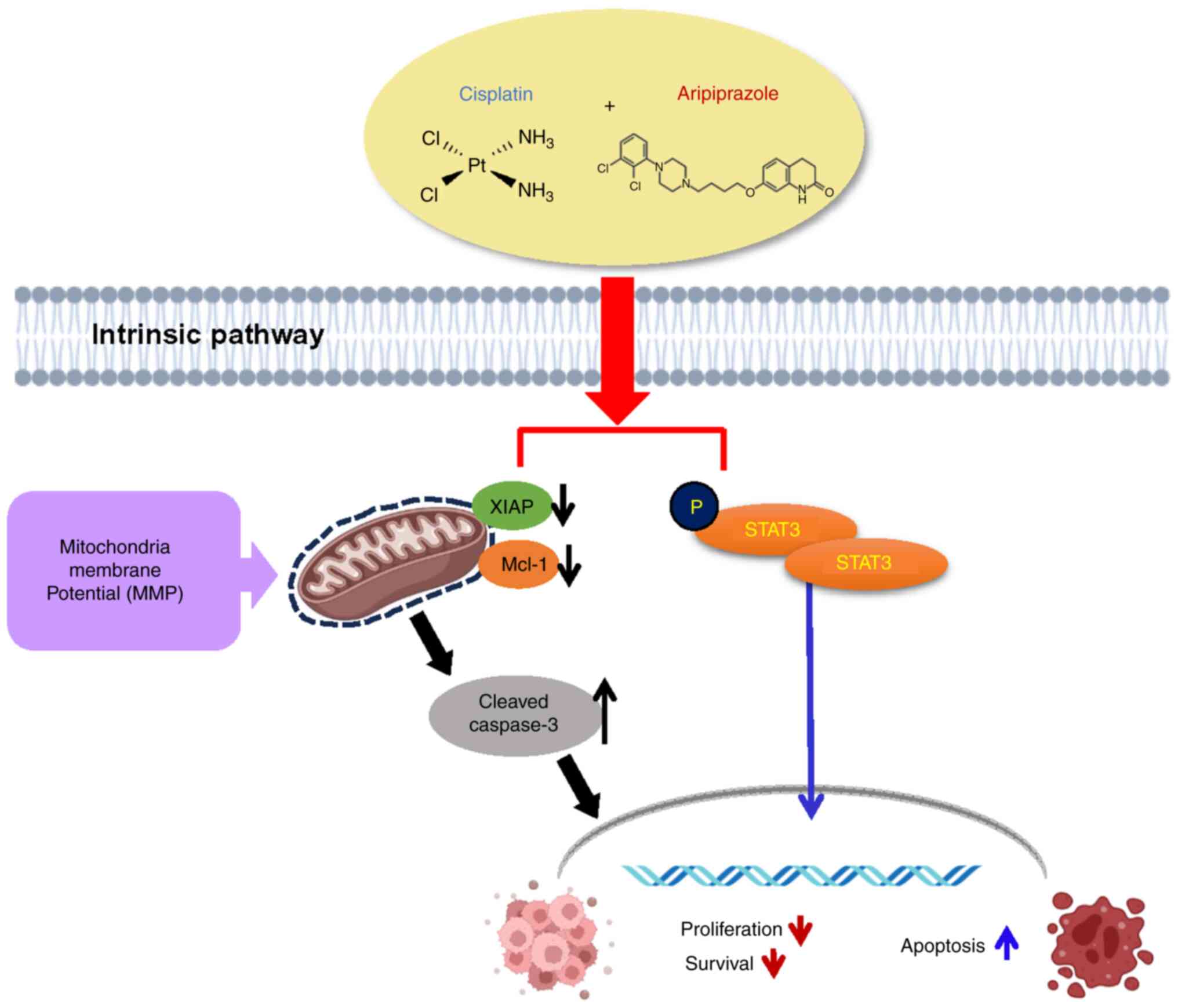|
1
|
Wang S, Zheng Y, Yang F, Zhu L, Zhu XQ,
Wang ZF, Wu XL, Zhou CH, Yan JY, Hu BY, et al: The molecular
biology of pancreatic adenocarcinoma: Translational challenges and
clinical perspectives. Sig Transduct Target Ther. 6:2492021.
View Article : Google Scholar
|
|
2
|
Muaddi H, Kearse L and Warner S:
Multimodal approaches to patient selection for pancreas cancer
surgery. Curr Oncol. 31:2260–2273. 2024. View Article : Google Scholar : PubMed/NCBI
|
|
3
|
Awais N, Satnarine T, Ahmed A, Haq A,
Patel D, Hernandez GN, Seffah KD, Zaman MA and Khan S: A systematic
review of chemotherapeutic regimens used in pancreatic cancer.
Cureus. 15:e466302023.PubMed/NCBI
|
|
4
|
Du J, Wang X, Li Y, Ren X, Zhou Y, Hu W,
Zhou C, Jing Q, Yang C, Wang L, et al: DHA exhibits synergistic
therapeutic efficacy with cisplatin to induce ferroptosis in
pancreatic ductal adenocarcinoma via modulation of iron metabolism.
Cell Death Dis. 12:7052021. View Article : Google Scholar : PubMed/NCBI
|
|
5
|
Ouyang G, Liu Z, Huang S, Li Q, Xiong L,
Miao X and Wen Y: Gemcitabine plus cisplatin versus gemcitabine
alone in the treatment of pancreatic cancer: A meta-analysis. World
J Surg Onc. 14:592016. View Article : Google Scholar
|
|
6
|
Principe DR, Underwood PW, Korc M, Trevino
JG, Munshi HG and Rana A: The current treatment paradigm for
pancreatic ductal adenocarcinoma and barriers to therapeutic
efficacy. Front Oncol. 11:6883772021. View Article : Google Scholar : PubMed/NCBI
|
|
7
|
Santos NAGD, Ferreira RS and Santos ACD:
Overview of cisplatin-induced neurotoxicity and ototoxicity, and
the protective agents. Food Chem Toxicol. 136:1110792020.
View Article : Google Scholar : PubMed/NCBI
|
|
8
|
Low ZY, Farouk IA and Lal SK: Drug
repositioning: New approaches and future prospects for
life-debilitating diseases and the COVID-19 pandemic outbreak.
Viruses. 12:10582020. View Article : Google Scholar : PubMed/NCBI
|
|
9
|
Islam S, Wang S, Bowden N, Martin J and
Head R: Repurposing existing therapeutics, its importance in
oncology drug development: Kinases as a potential target. Br J Clin
Pharmacol. 88:64–74. 2021. View Article : Google Scholar : PubMed/NCBI
|
|
10
|
Shankar E, Subramaniam V and Allimuthu D:
Editorial: Adopting drug repurposing to overcome drug resistance in
cancer. Front Cell Dev Biol. 11:11916822023. View Article : Google Scholar : PubMed/NCBI
|
|
11
|
Stępnicki P, Kondej M and Kaczor AA:
Current concepts and treatments of schizophrenia. Molecules.
23:20872018. View Article : Google Scholar : PubMed/NCBI
|
|
12
|
Suzuki S, Okada M, Kuramoto K, Takeda H,
Sakaki H, Watarai H, Sanomachi T, Seino S, Yoshioka T and Kitanaka
C: Aripiprazole, an antipsychotic and partial dopamine agonist,
inhibits cancer stem cells and reverses chemoresistance. Anticancer
Res. 36:5153–5161. 2016. View Article : Google Scholar : PubMed/NCBI
|
|
13
|
Kim MS, Yoo BC, Yang WS, Han SY, Jeong D,
Song JM, Kim KH, Aravinthan A, Kim JH, Kim JH, et al: Src is the
primary target of aripiprazole, an atypical antipsychotic drug, in
its anti-tumor action. Oncotarget. 9:5979–5992. 2017. View Article : Google Scholar
|
|
14
|
Kim JY, Tae IH, Lee BM, Kim HS and Yoon
SP: Low doses of the anti-psychotic drug aripiprazole have strong
P-gp-inhibitory activity and sensitize anti-mitotic drug-resistant
cancer cells. Anticancer Res. 38:5101–5108. 2018. View Article : Google Scholar : PubMed/NCBI
|
|
15
|
Zhuo C, Xun Z, Hou W, Ji F, Lin X, Tian H,
Zheng W, Chen M, Liu C, Wang W and Chen C: Surprising anticancer
activities of psychiatric medications: Old drugs offer new hope for
patients with brain cancer. Front Pharmacol. 10:12622019.
View Article : Google Scholar : PubMed/NCBI
|
|
16
|
Badran A, Wahab AT, Zafar H, Mohammad N,
Imad R, Khan MA, Baydoun E and Choudhary MI: Antipsychotics drug
aripiprazole as a lead against breast cancer cell line (MCF-7) in
vitro. PLoS One. 15:e02356762020. View Article : Google Scholar : PubMed/NCBI
|
|
17
|
Jiang C, Lee SH, Park JH, Lee JS, Park JW,
Kim JR, Lee SH, Kim HS and Yoon SP: A low dose of aripiprazole has
the strongest sensitization effect among 19 repositioned bipolar
drugs in P-gp-overexpressing drug-resistant cancer cells.
Anticancer Res. 41:687–697. 2021. View Article : Google Scholar : PubMed/NCBI
|
|
18
|
Lee HJ, Kang SM, Sonn JK and Lim YB:
Dopamine receptor D2 activation suppresses the
radiosensitizing effect of aripiprazole via activation of AMPK.
FEBS Open Bio. 9:1580–1588. 2019. View Article : Google Scholar : PubMed/NCBI
|
|
19
|
Singh P, Patel M, Bhowmik D, Kumari N,
Prajapati SK and Gupta R: Identification of common biomarkers
affecting patient survival in cancers. World Acad Sci J. 6:1–17.
2024. View Article : Google Scholar
|
|
20
|
de Oliveira G, Freire PP, Cury SS, de
Moraes D, Oliveira JS, Dal-Pai-Silva M, Reis PP and Carvalho RF: An
integrated meta-analysis of secretome and proteome identify
potential biomarkers of pancreatic ductal adenocarcinoma. Cancers
(Basel). 12:7162020. View Article : Google Scholar : PubMed/NCBI
|
|
21
|
Slominski RM, Ramen C, Chen JY and
Slominski AT: How cancer hijacks the body's homeostasis through the
neuroendocrine system. Trends Neurosci. 4:263–275. 2023. View Article : Google Scholar
|
|
22
|
Jeong HJ, Jung CW, Kim HJ, Park BH, Moon
Y, Kim JY and Park MJ: Aripiprazole sensitizes head and neck cancer
cells to ionizing radiation by enhancing the production of reactive
oxygen species. Pharmacol Res Perspect. 10:e009892022. View Article : Google Scholar : PubMed/NCBI
|
|
23
|
Rodrigues T and Ferraz L: Therapeutic
potential of targeting mitochondrial dynamics in cancer. Biochem
Pharmacol. 182:1142822020. View Article : Google Scholar : PubMed/NCBI
|
|
24
|
Li X, Guo S, Xiong XK, Peng BY, Huang JM,
Chen MF, Wang FY and Wang JN: Combination of quercetin and
cisplatin enhances apoptosis in OSCC cells by downregulating xIAP
through the NF-κB pathway. J Cancer. 10:4509–4521. 2019. View Article : Google Scholar :
|
|
25
|
Pan B, Chen J, Lian J, Huang XF and Deng
C: Unique effects of acute aripiprazole treatment on the dopamine
D2 receptor downstream cAMP-PKA and Akt-GSK3β signalling pathways
in rats. PLoS One. 10:e01327222015. View Article : Google Scholar
|
|
26
|
Pereira A, Zhang B, Malcolm P,
Sugiharto-Winarno A and Sundram S: Quetiapine and aripiprazole
signal differently to ERK, p90RSK and c-Fos in mouse frontal cortex
and striatum: role of the EGF receptor. BMC Neurosci. 15:302014.
View Article : Google Scholar : PubMed/NCBI
|
|
27
|
Pan B, Huang XF and Deng C: Aripiprazole
and haloperidol activate GSK3β-dependent signalling pathway
differentially in various brain regions of rats. Int J Mol Sci.
17:4592016. View Article : Google Scholar
|















